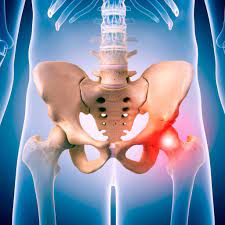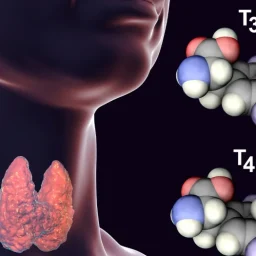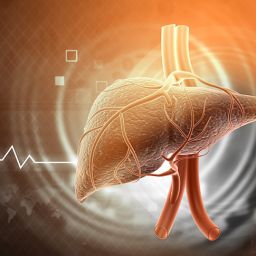
The Mechanics of Constipation
Before diving into the effects of constipation on rectal health, it’s important to understand the mechanics of this condition. Constipation is generally defined by infrequent, difficult, or painful bowel movements. Typically, a person is considered constipated if they have fewer than three bowel movements per week or experience difficulty passing stools. Other common symptoms include a feeling of incomplete evacuation, bloating, and abdominal discomfort.
Constipation can arise due to various factors, including poor diet, dehydration, lack of physical activity, certain medications, and underlying medical conditions. When constipation occurs, stool can become hard and dry, making it difficult for the rectum to process and expel it. The muscles of the rectum and anus, which are responsible for the defecation process, can become strained over time, leading to several complications.
The Effect of Constipation on Rectal Health
The rectum plays an essential role in the final stages of digestion, storing waste until it is ready to be expelled from the body. In normal circumstances, the rectal muscles stretch as stool accumulates, sending signals to the brain that it’s time to eliminate waste. However, constipation can alter this process, placing undue stress on the rectum. The following sections describe how constipation can affect rectal health.
Increased Straining and Pressure on the Rectum
One of the most immediate effects of constipation on the rectum is the increased need for straining during bowel movements. When stool is dry and hard, the body must exert more force to expel it. This forceful straining places significant pressure on the rectal muscles, which can have several negative consequences.

- Hemorrhoids: The repeated straining associated with constipation is a leading cause of hemorrhoids. Hemorrhoids are swollen blood vessels in the rectum and anus that can become inflamed and painful. Straining increases the pressure on the veins in the lower rectum, leading to the development of hemorrhoids. Symptoms of hemorrhoids include itching, bleeding, and discomfort, especially during or after bowel movements.
- Rectal Prolapse: Chronic straining can also contribute to rectal prolapse, a condition in which part of the rectum slips out of its normal position and protrudes from the anus. This condition is more common in older adults but can affect individuals of all ages. Rectal prolapse may result in discomfort, difficulty controlling bowel movements, and the need for surgical intervention in severe cases.
- Anal Fissures: Constipation can lead to anal fissures, which are small tears or cracks in the skin around the anus. These fissures can be caused by the passage of large, hard stools, as the strain of expelling such stool can stretch the sensitive skin in the anal area. Anal fissures can be incredibly painful, especially during and after bowel movements, and may cause bleeding.
Impaired Rectal Sensation and Muscle Function
Chronic constipation can also have a direct impact on the muscles of the rectum and anus. The rectum is lined with muscles that help propel stool through the digestive tract and control its release. When constipation is persistent, the muscles of the rectum and pelvic floor may become weakened or desensitized, leading to further complications.
- Pelvic Floor Dysfunction: The pelvic floor muscles play a crucial role in the proper function of the rectum. When these muscles are weakened or impaired due to prolonged constipation, it can lead to pelvic floor dysfunction. This condition can result in difficulty initiating bowel movements, incomplete evacuation, and an increased risk of incontinence.
- Rectal Hyposensitivity: Constipation can alter the sensory nerves in the rectum, leading to reduced sensitivity to the presence of stool. This reduced sensitivity, known as rectal hyposensitivity, can make it difficult for the body to recognize when it’s time to evacuate waste. This can result in a feeling of incomplete evacuation or the inability to respond to the urge to defecate, exacerbating the problem of constipation.
- Anismus: Anismus is a condition in which the pelvic floor muscles, rather than relaxing during defecation, contract inappropriately, making it difficult for the rectum to expel stool. Anismus is often seen in individuals with chronic constipation and can cause significant difficulty in passing stools, leading to further straining and rectal discomfort.
Impact on Rectal Health Due to Long-Term Constipation
While occasional constipation is generally manageable, long-term or chronic constipation can have more serious consequences for rectal health. Over time, the repeated strain and pressure caused by constipation can lead to permanent changes in the rectum and anus, making it increasingly difficult to manage the condition.

- Chronic Hemorrhoids: Hemorrhoids that develop as a result of constipation can become chronic if the underlying constipation is not addressed. Chronic hemorrhoids may require medical intervention, such as rubber band ligation, sclerotherapy, or even surgery, to provide relief. In severe cases, hemorrhoids can lead to persistent bleeding and significant pain.
- Fecal Incontinence: Chronic constipation can lead to fecal incontinence, a condition in which an individual loses the ability to control bowel movements. This can occur due to damage to the rectal muscles or nerves, or because the rectum becomes stretched out and loses its ability to hold stool. Fecal incontinence can have a profound impact on quality of life and may require treatment through pelvic floor therapy or surgery.
- Rectal Impact on Quality of Life: Long-term constipation can significantly affect a person’s quality of life. The discomfort and pain caused by conditions such as hemorrhoids, anal fissures, and rectal prolapse can make everyday activities challenging. The embarrassment and distress caused by symptoms like fecal incontinence can lead to social isolation and psychological distress. Addressing constipation early on is critical to preventing these more serious, long-term issues.
Managing Constipation for Rectal Health
To prevent or manage the negative effects of constipation on rectal health, it is essential to take steps that promote regular bowel movements and support the health of the digestive system. The following strategies can help alleviate constipation and protect rectal health:
1. Dietary Changes
Diet plays a crucial role in bowel health. A diet high in fiber, including fruits, vegetables, whole grains, and legumes, helps soften stool and makes it easier to pass. Fiber also promotes regular bowel movements by increasing the bulk of stool, which stimulates the muscles of the colon and rectum. It’s important to gradually increase fiber intake and drink plenty of water to prevent bloating and discomfort.
2. Hydration
Dehydration is a common cause of constipation, as insufficient fluid intake can lead to dry, hard stools. Drinking adequate amounts of water throughout the day can help prevent constipation and promote easier bowel movements. A good rule of thumb is to drink at least eight 8-ounce glasses of water daily, though individual hydration needs may vary.
3. Regular Physical Activity
Exercise is another key factor in promoting bowel regularity. Physical activity helps stimulate the muscles of the intestines, encouraging the movement of stool through the digestive tract. Regular exercise, such as walking, jogging, or yoga, can help prevent constipation and alleviate some of its symptoms.
4. Pelvic Floor Exercises
For individuals who experience pelvic floor dysfunction as a result of constipation, pelvic floor exercises (also known as Kegel exercises) can help strengthen the muscles responsible for bowel movements. These exercises involve contracting and relaxing the pelvic floor muscles, helping to improve muscle tone and coordination.
5. Avoiding Straining
Straining during bowel movements can exacerbate constipation and lead to complications such as hemorrhoids and anal fissures. It is important to respond to the urge to have a bowel movement promptly and avoid sitting on the toilet for prolonged periods of time. Proper posture while using the toilet can also help alleviate strain on the rectum.
6. Medication and Medical Treatment
In some cases, lifestyle changes may not be enough to relieve constipation. Laxatives and stool softeners can help promote bowel movements, but these should be used under the guidance of a healthcare provider, as overuse can lead to dependency. In more severe cases, a doctor may recommend other treatments, such as biofeedback therapy or surgery, to address underlying issues related to chronic constipation.
Constipation is not just a minor inconvenience; it can have a significant impact on rectal health. The effects of constipation on the rectum can range from discomfort and pain to more severe conditions, such as hemorrhoids, anal fissures, and rectal prolapse. Chronic constipation can lead to long-term damage to the rectal muscles and nerves, contributing to complications such as fecal incontinence and reduced quality of life.
Fortunately, by making dietary changes, staying hydrated, exercising regularly, and seeking medical treatment when necessary, individuals can manage constipation and protect their rectal health. Early intervention is key to preventing the progression of constipation-related complications, ensuring better long-term rectal health, and improving overall quality of life.















